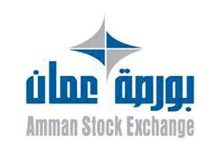
Amman Stock Exchange reports strong performance, increased investor confidence
shahennews
Shares of leading companies listed on the Amman Stock Exchange (ASE) continue to exert a significant influence on the overall market index, playing a crucial role in restoring investor confidence.
The Jordan News Agency (Petra) has closely monitored the stock prices of these companies, which have witnessed a notable surge in recent times, despite the conclusion of the dividend distribution period that typically impacts stock prices. This development has reassured investors, indicating the potential beginning of renewed confidence in the market. The positive profit expectations for these companies have garnered a favorable impression among traders.
The recent period has witnessed the re-entry of some experienced investors into the market, alongside the establishment of new financial positions driven by optimistic medium-term expectations for stock prices.
The figures from the ASE for the first half of 2023 closely resemble those of the corresponding period of 2022. By the end of June, the trading volume reached approximately JD851.5 million, with a daily average of around JD6.4 million. In comparison, the same period last year saw trading volume totaling JD923 million, with a daily average of around JD7 million.
Additionally, the total number of shares traded amounted to 586.9 million through 375.9 thousand contracts at the end of June, compared to 558 million shares through 375 thousand contracts. The index closed the first half of the current year at 2465 points, while it stood at 2476 points during the same period last year.
The industrial sector accounted for approximately 35% of the trading volume, reaching about JD306 million, followed by the financial sector with a 33% share and a trading volume of JD286 million. The services sector ranked last with a 31% share and a trading volume of JD271 million.
The improvement in the stock market’s performance and the profitability of companies can be attributed to the increased operational activity of these firms and positive indicators pointing towards economic recovery and progress. These indicators include higher economic growth rates, expanding exports, increased tourism revenue, remittances from Jordanians abroad, and substantial growth in the central bank’s reserves.
The positive results achieved by most leading companies, particularly in the banking and mining sectors in 2022, have raised expectations for improved bank performance in the remaining months of 2023. This optimism stems from the absence of the need for new provisions and expansions undertaken by some banks, including the acquisition of branches within and outside Jordan, as well as obtaining licenses for branches beyond the Kingdom.
Furthermore, clear signs of positive outcomes have emerged in the phosphate and potash sectors, as well as other mining and raw material companies, surpassing the performance of previous years. These favorable results can be attributed to the global increase in raw material prices.
Technically, the general index is being driven by investor optimism following its stabilization after a speculative wave during the general assemblies’ period in April and the subsequent dividend announcements. While the last week of the month often witnesses selling operations by some investors to cover their exposed financial positions, the first half of this year has seen a market recovery. This recovery has been accompanied by positive expectations for the interim financial results of companies, leading to upward trends across most sectors of listed companies.
With the index currently hovering around 2470, coupled with the conclusion of the interim financial results disclosure period, the index is expected to target a new resistance level of around 2600 points. This positive outlook is supported by favorable expectations for financial performance.
The focus remains on sustaining the positive momentum experienced by the stock market, prompting the government and capital market authorities to prioritize the national economy and implement actions that foster further optimism in the market. This includes encouraging banks, which boast excellent liquidity levels, to establish mutual investment funds in the stock market to enhance liquidity and attract deposits from Jordanian citizens.
Additionally, expediting procedures for the integration of small stock market companies facing challenges, reducing trading commissions, organizing investment visits to meet with investors and investment funds, and promoting investment opportunities in the stock market are necessary steps to restore confidence in the ASE and reinforce its position as an active capital market.
//Petra// RZ






